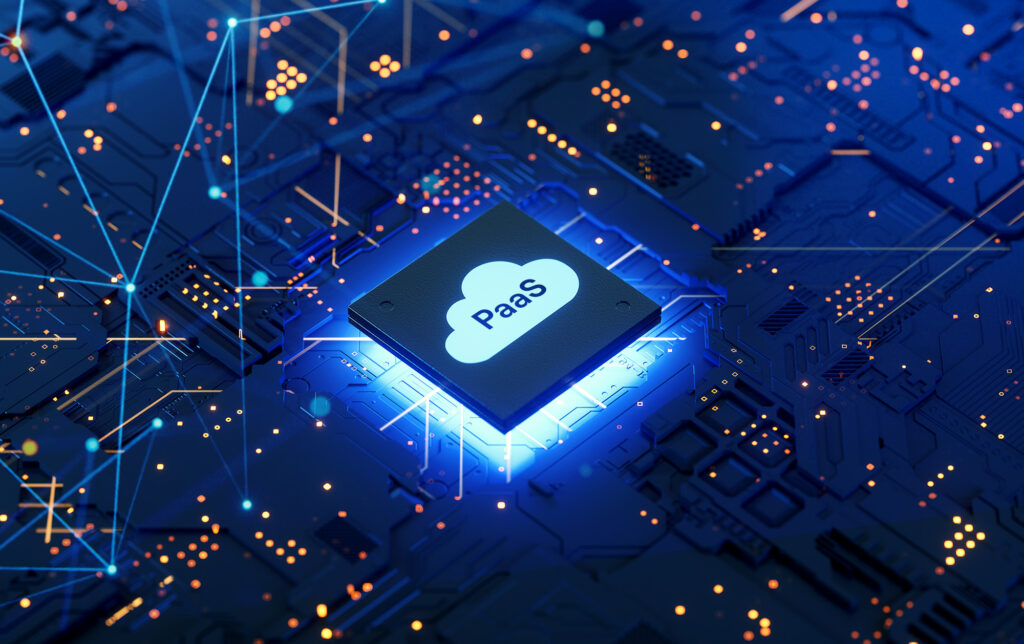The importance of strategy and governance when outsourcing to an IaaS or PaaS provider
In today’s digital landscape, businesses are increasingly turning to cloud solutions to meet their infrastructure and platform needs. NetNordic offers a secure private cloud that includes both IaaS and optional PaaS solutions, which are ISO 27001 and ISAE 3402 certified. The importance of governance and certification when outsourcing to an IaaS or PaaS provider outlines the assessments customers should conduct when choosing providers.

Talk to an Expert!
Do you have questions about private cloud?
We’re here to help.

We are your best companion. That is our promise to you.
Reach out to a partner who can look at your individual cloud needs and advise you the right way to go, today and in the future. We can help you with governance and compliance.
- Governance: framework of policies and processes.
- Certification: standards and best practices.
Governance & Certification
By conducting these assessments, customers can make informed decisions when choosing an IaaS or PaaS provider, ensuring that their cloud solutions are secure, compliant, and aligned with their business objectives.
Governance
Is the framework of policies, processes, and controls that ensure the effective and efficient use of IT in enabling an organization to achieve its goals. When outsourcing to an IaaS or PaaS provider, strong governance is crucial to ensure that the provider’s services are resilient, compliant, and secure.
Certification
Serves as a testament to a provider’s adherence to industry standards and best practices. ISO 27001 certification, for instance, indicates that the provider has implemented a robust information security management system (ISMS). Similarly, ISAE 3402 certification demonstrates that the provider has effective controls in place for financial reporting and operational processes.
Assessments for Choosing an IaaS or PaaS Provider
When selecting an IaaS or PaaS provider, customers should conduct thorough assessments to ensure that the provider meets their governance and risk management requirements. Here are some key areas to consider.
Security and Compliance
Verify that the provider has relevant certifications such as ISO 27001 and ISAE 3402. Assess their security measures, including data encryption, access controls, and incident response plans.
Service Level Agreements
Review the SLAs to ensure they meet your performance, availability, and support requirements. SLAs should clearly define the provider’s responsibilities and the penalties for non-compliance.
Data Governance
Ensure that the provider has robust data governance policies in place. This includes data classification, data retention, and data privacy measures.
Risk Management
Evaluate the provider’s risk management framework. This should include risk assessments, risk mitigation strategies, and regular audits5.
Disaster Recovery and Business Continuity
Assess the provider’s disaster recovery and business continuity plans. Ensure they have redundant systems and backup procedures to minimize downtime and data loss.
Transparency and Reporting
Ensure that the provider offers transparent reporting on their performance, security incidents, and compliance status. Regular reports and audits can help you monitor the provider’s adherence to governance and certification standards.
FAQ
Frequently asked questions about governance and compliance when choosing an IaaS or PaaS provider!
-
Why is governance important when choosing an IaaS or PaaS provider?
Governance is crucial because it ensures that the provider’s services are resilient, compliant, and secure. It involves a framework of policies, processes, and controls that help in the effective and efficient use of IT to achieve organizational goals.
-
What certifications should I look for in an IaaS or PaaS provider?
Look for certifications such as ISO 27001 and ISAE 3402. ISO 27001 indicates that the provider has implemented a robust information security management system (ISMS), while ISAE 3402 demonstrates effective controls for financial reporting and operational processes.
-
How can I assess the security and compliance of a provider?
Verify that the provider has relevant certifications like ISO 27001 and ISAE 3402. Assess their security measures, including data encryption, access controls, and incident response plans.
-
What should I look for in Service Level Agreements (SLAs)?
Review SLAs to ensure they meet your performance, availability, and support requirements. SLAs should clearly define the provider’s responsibilities and the penalties for non-compliance3.
-
Why is data governance important?
Data governance ensures that the provider has robust policies in place for data classification, data retention, and data privacy. This helps in maintaining the integrity and security of your data.
-
How can I evaluate a provider's risk management framework?
Evaluate the provider’s risk management framework by looking at their risk assessments, risk mitigation strategies, and regular audits.
-
What should I consider for disaster recovery and business continuity?
Assess the provider’s disaster recovery and business continuity plans. Ensure they have redundant systems and backup procedures to minimize downtime and data loss.
-
How important is transparency and reporting?
Transparency and reporting are essential for monitoring the provider’s adherence to governance and certification standards. Regular reports and audits can help you stay informed about their performance, security incidents, and compliance status6.


